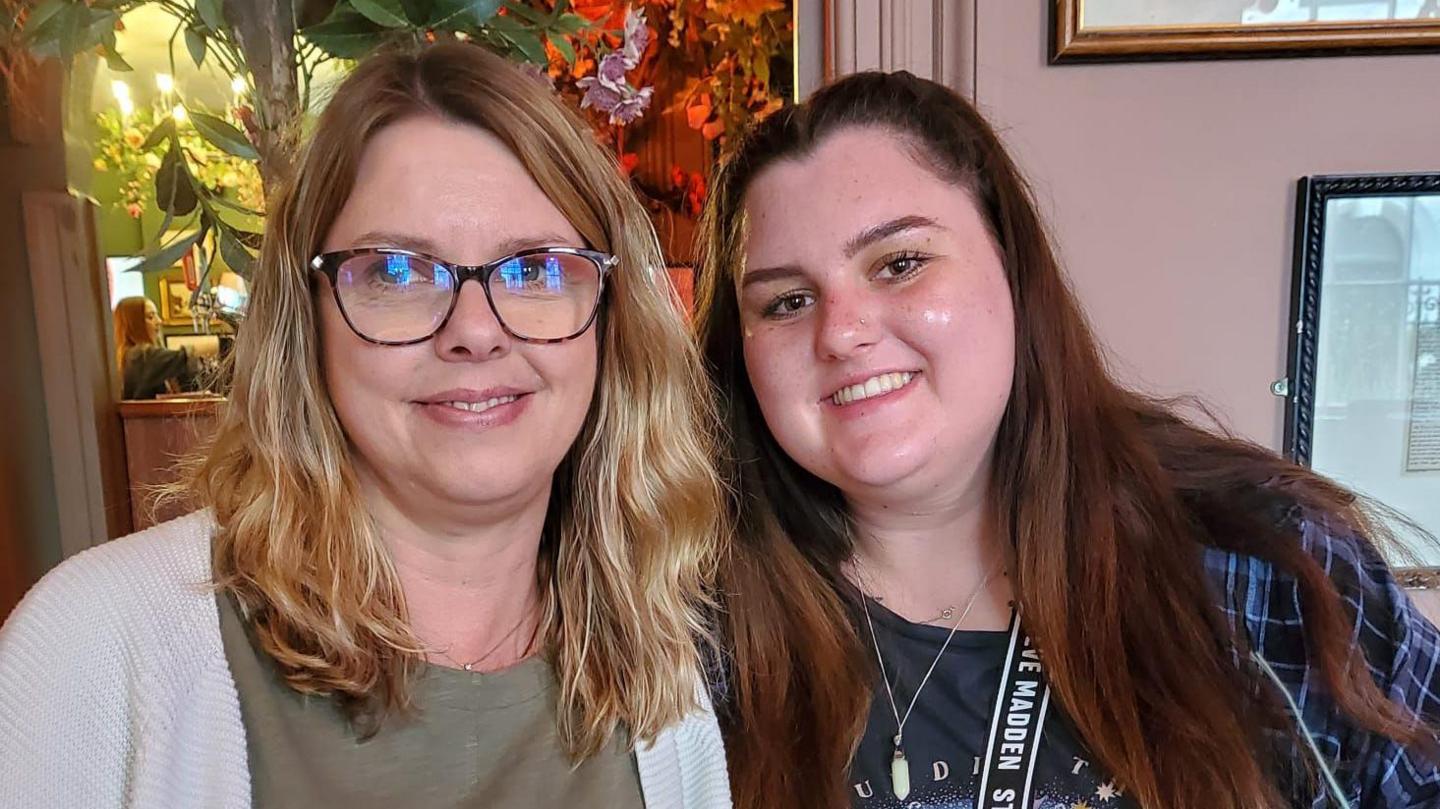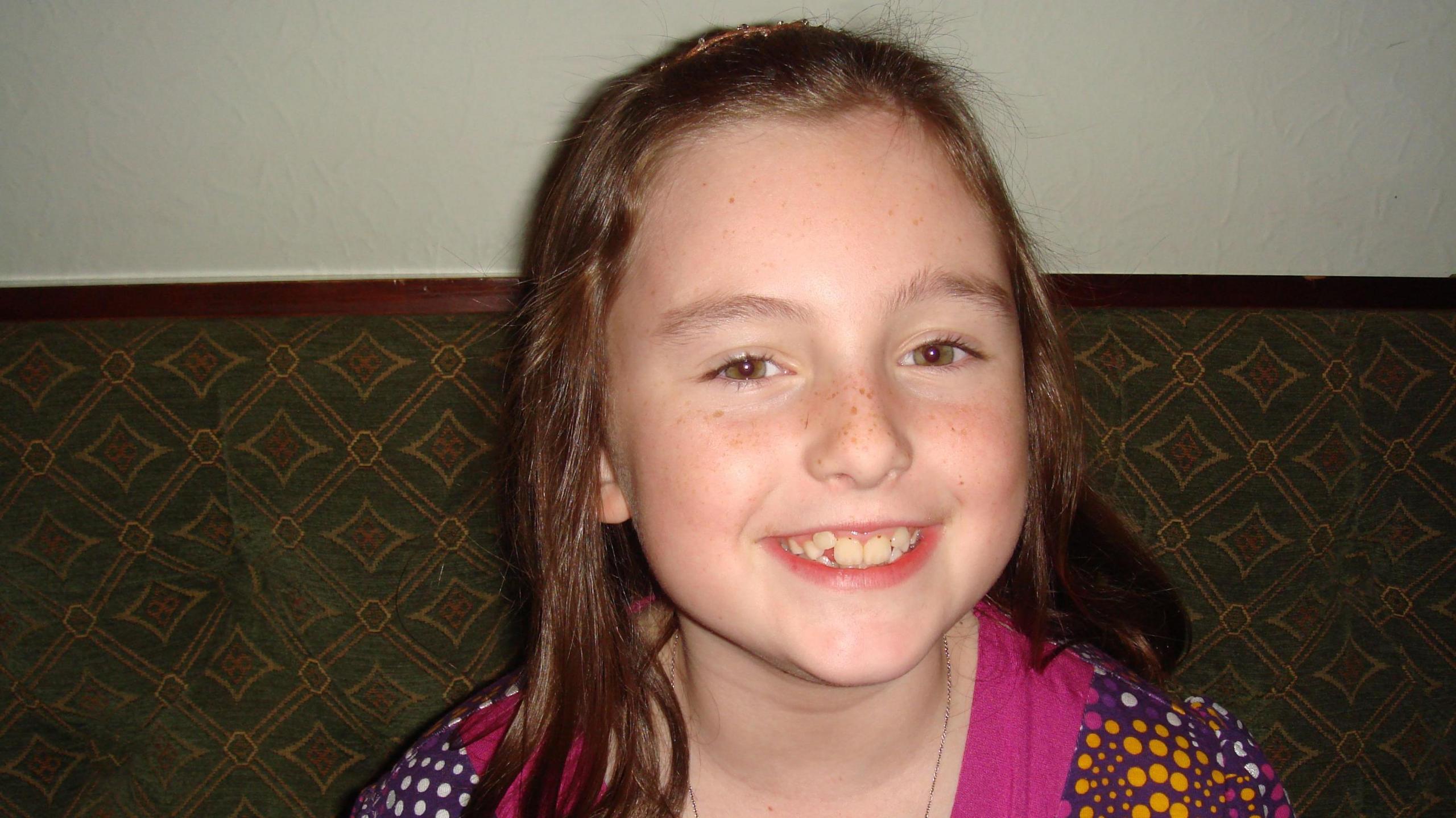Mum stunned by 'failings' before daughter's death

Beth Langton, 22, killed herself after what a coroner called a "significant reduction" in support offered to her
- Published
The mother of a woman who killed herself by ingesting a poisonous substance she sourced online has criticised "failings and misunderstandings" in her daughter's care.
Beth Langton, 22, who had been diagnosed with a personality disorder and complex post-traumatic stress disorder, was discovered in her flat in Retford, Nottinghamshire, on 18 February 2023.
An inquest heard that her death followed a "significant reduction" in the support she was offered, leading to her mental state being "adversely affected".
Ms Langton's mother, Shelley Macpherson, said the inquest revealed "worse" failings than she had imagined.
Mrs Macpherson told the BBC her daughter's mental health issues began when she was a teenager, and she was sectioned aged 17.
She said Ms Langton had received ongoing care, living outside of the family home and eventually moving to a flat at Oakwell House - a residential home for women with mental health conditions.
"When she first went to Oakwell House, she had 24/7 support from the staff and support from the community mental health team," Mrs Macpherson said.
"But in 2022, the NHS trust [Nottinghamshire Healthcare NHS Foundation Trust] discharged her saying she had enough support in the community."
She added that neither she nor her daughter had been comfortable with the change, particularly given the drugs Ms Langton had been prescribed.
As an adult, Ms Langton had to give permission for her mother to intervene in her care.

Ms Langton's mother, Shelley Macpherson (left), said an inquest into her daughter's death had revealed "worse" failings than she had imagined
Mrs Macpherson, 48, said: "That year, we had a difficult Christmas. From then onwards, until she died, she was not in a good place. She was disengaged with everything."
She said in the build-up to her daughter's death, Ms Langton had arranged to meet her council-appointed social worker and had asked to have all her "observation hours" at Oakwell House removed. It meant there was no obligation for staff to have one-to-one time with her.
Mrs Macpherson said: "We were shocked that the social worker agreed to that without consulting anyone else."
The night before Ms Langton died, she rang her mother, as per their routine on the days they did not see each other in person.
"She actually seemed more positive. She asked me if I was upset with her and I said, 'no of course not, I love you'," Mrs Macpherson said.
"Looking back, that kind of makes sense now."
The next day, Mrs Macpherson was waiting for her daughter's call when two police officers knocked on her door with the news of her death.
Mrs Macpherson said her daughter had spoken of wanting to be "normal like everyone else".
"Beth was very creative - she was really talented at writing poetry and she used it a lot to deal with her emotions. We've got a lot of her poems now," she said.
"As a child, she was a happy-go-lucky little girl. She loved to do things especially if it was something she could win at. She'd try anything."
'Abandonment and rejection'
An inquest held at Nottingham Coroner's Court into Ms Langton's death concluded last month.
It heard she had sourced the substance online, which she had "deliberately ingested with the intention of bringing about her death".
Coroner Laurinda Bower found decisions to reduce the support offered to Ms Langton "were often made in silo and on the basis of inaccurate information about the support Beth was receiving".
In her recorded findings, Ms Bower said: "The withdrawal of support led to feelings of abandonment and rejection linked to Beth's personality disorder.
"These feelings of abandonment and rejection were one of many issues that adversely affected her mental state in the lead-up to her suicide."
The coroner later issued a prevention of future deaths report to various agencies.
In the report, she said: "Beth used the internet to research how to source and use [the substance] to bring about her death. She followed that guidance meticulously. That same guidance was still readily available on the internet at the time of her inquest, although I believe it might now have been removed.
"What system is in place to ensure that such websites are detected promptly and made unavailable to the public in a timely fashion?"

Ms Langton's mum said her daughter had been a "happy-go-lucky little girl"
Leigh Day Solicitors, which represented Ms Langton's family at her inquest, said she had been receiving input from Gillian Merrill, a clinical psychologist contracted by Oakwell House.
The firm said Oakwell and Ms Merrill did not have a written contract or terms of reference for her role or the support she would give to Ms Langton.
Leigh Day said this "fluid" arrangement had "created significant misunderstandings across the agencies involved in Beth's care".
This, it said, included concerns raised in the spring of 2022 about Ms Langton being discharged by Nottinghamshire Healthcare NHS Foundation Trust "for the first time in over a decade".
"The coroner heard evidence the decision was taken in large part as a result of a mistaken understanding about Ms Merrill's role and the psychological services she provided to Beth," the firm said.
"Beth is documented as having herself informed the mental health team at the time that she was not receiving the support they understood she would be, something which her care coordinator admitted at the inquest should have led to a reconsideration of her discharge."
Mrs Macpherson said the evidence given to the inquest, which concluded on 8 July, had been "astonishing".
"It was extremely distressing," she said.
"We thought we knew there were failings and missed opportunities but it was so much worse than what we imagined.
"All I ask is that things are improved so this doesn't happen again."
If you have been affected by any of the issues raised in this story, you can visit the BBC Action Line.
Creative Care, which runs Oakwell House, said while Ms Merrill had been self-employed and provided a "drop-in service for staff and residents", the psychologist "was not intended to replace any prescribed care package".
"The decision as to the level of support received by service users in the form of a care package is determined by medical professionals and social services and not Creative Care.
"We are aware of the coroner's concerns around a misunderstanding about services that led to a disjointed package of care, and steps have been taken to improve interagency communications," a spokesperson added.
Dr Susan Elcock, executive medical director and deputy chief executive of Nottinghamshire Healthcare NHS Foundation Trust, said: "We are working with our partner agencies to address the issues raised by the coroner and improve the experience of care for our current and future patients."
Melanie Williams, executive director of adult social care and health at Nottinghamshire County Council, added: "Nottinghamshire County Council carries out regular reviews of its practices and the support it offers and will always make any improvements that may be required."
Follow BBC Nottingham on Facebook, external, on X, external, or on Instagram, external. Send your story ideas to eastmidsnews@bbc.co.uk, external or via WhatsApp, external on 0808 100 2210.